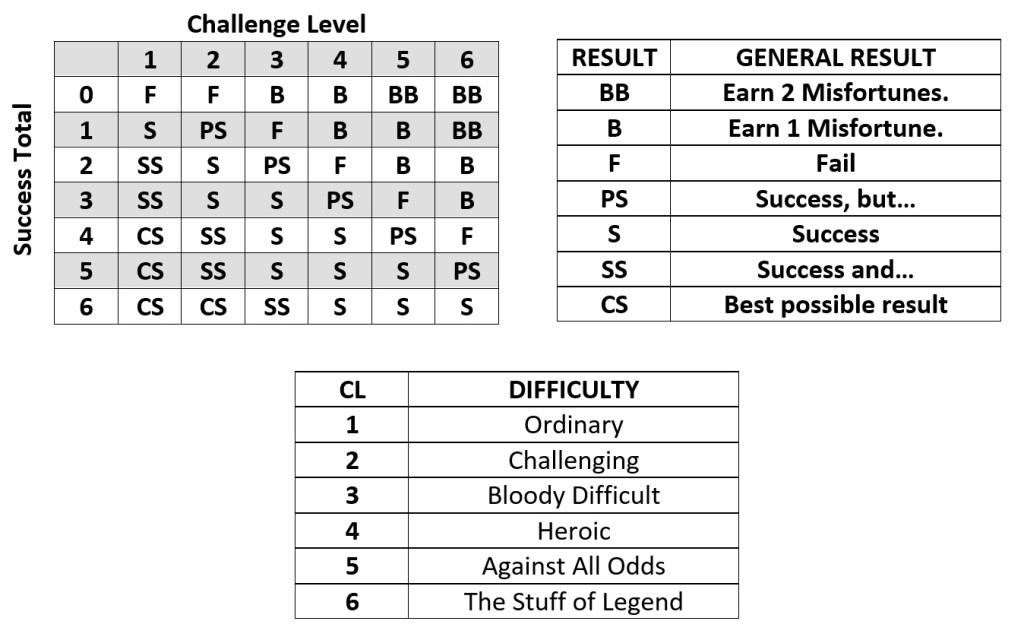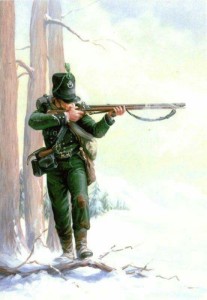 Shortly after writing a post on design decisions for the basic rules engine of the game, it occurred to me that I was putting the cart before the horse. Instead of imagining what a game based of a wargame would look like, I really needed to design a wargame and then let the core rules for the RPG evolve from that naturally. So I spent some time doing that and ended up with a simple set of rules that will most likely serve as the mass combat system in book 2 of the set: Captains & Campaigns.
Shortly after writing a post on design decisions for the basic rules engine of the game, it occurred to me that I was putting the cart before the horse. Instead of imagining what a game based of a wargame would look like, I really needed to design a wargame and then let the core rules for the RPG evolve from that naturally. So I spent some time doing that and ended up with a simple set of rules that will most likely serve as the mass combat system in book 2 of the set: Captains & Campaigns.
Using the conflict resolution from that game as a base, I added a simple ‘drama generator,’ in the form of Misfortunes, and now have a set of core rules that I believe could have realistically come from the mind of a literature professor whose hobby is miniature wargaming. The results are below.
TASK RESOLUTION
Basic Task Resolution in Donjons & Dragoons is accomplished by the player rolling a number of Dice equal to whatever Attribute the Judge thinks is appropriate to the action being taken. Firing a musket, for example, is clearly based on Dexterity, but repairing it would likely require Saavy, and using it in melee might rely on either Dexterity (if using a bayonet) or Thews (if bashing an enemy’s skull in with the buttstock). The final decision is the Judge’s to make.
Before the roll, the Judge will set a Challenge Level, based upon the difficulty of the task at hand. The player then rolls the appropriate number of dice: each ‘5’ or ‘6’ is a Success; each ‘2’, ‘3’ or ‘4’ is discarded, and each ‘1’ is a Misfortune. The number of Successes is then cross-referenced with the Challenge Level on the Task Resolution Table to get a result.
BB=Bolloxed B=Blunder F=Failure PS=Partial Suc. S=Success SS=Smashing Suc. CS=Cracking Suc.
Advantage & Disadvantage
The Judge may decide to give the roll Advantage due to some situational benefit in the character’s favor. A Rifle, for example gives Advantage during shooting tasks, good roads give Advantage to characters marching along them, and having an NPC owe the character a favor will give Advantage when trying to get them to do you a favor in return.
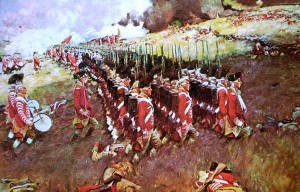 The Judge might, instead, decide to give the roll Disadvantage in circumstances where external factors work against the action. Travelling in bad weather would give a character Disadvantage when marching, getting a favor out of a character that despises you gives Disadvantage, and Charging an enemy on a hill gives your attacks Disadvantage (and could also, reflexively, give the enemy Advantage).
The Judge might, instead, decide to give the roll Disadvantage in circumstances where external factors work against the action. Travelling in bad weather would give a character Disadvantage when marching, getting a favor out of a character that despises you gives Disadvantage, and Charging an enemy on a hill gives your attacks Disadvantage (and could also, reflexively, give the enemy Advantage).
Where an advantage is in play, dice succeed on a roll of ‘4,’ ‘5,’ or ‘6.’ Where a Disadvantage is in play, they succeed on a ‘6,’ only.
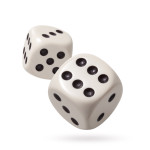 Rerolls
Rerolls
Certain character abilities, like Trades, will allow rerolls. Each reroll may be used to reroll a single die, once. No die may be re-rolled more than once, and the player must accept the result of the second roll, even if it is worse than the original.
Resistance
When another character passively resists, or actively opposes, an action, they may (at the discretion of the Judge) roll dice to counter the successes of the character taking the action.
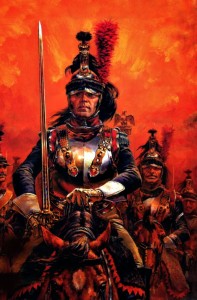 Passive Resistance represents some form of protection or opposition, gained from external factors, that does not require direct action on the part of a character. For example, a wall will give Passive Resistance to a person taking cover behind it when they are shot at, armor would give Passive Resistance to a sword strike, and contacts in the royal court might give Passive Resistance to attempts to ruin one’s reputation. The exact number of dice rolled will be determined by the Judge, and several factors might be combined to make a larger pool.
Passive Resistance represents some form of protection or opposition, gained from external factors, that does not require direct action on the part of a character. For example, a wall will give Passive Resistance to a person taking cover behind it when they are shot at, armor would give Passive Resistance to a sword strike, and contacts in the royal court might give Passive Resistance to attempts to ruin one’s reputation. The exact number of dice rolled will be determined by the Judge, and several factors might be combined to make a larger pool.
Active Resistance uses personal Attributes to oppose the action. For example, a target who is aware that they are being shot at may use Active Resistance to dodge the shot, a character being court-martialed might use Active Resistance to defend themselves against Prosecution, and the subject of torture will use Active Resistance to avoid giving information. In all such cases, the Judge will determine what Attribute is used for the roll, and this will determine the number of dice rolled.
In some cases (such as ducking behind a wall to avoid being shot) the Judge might apply both Passive and Active Resistance, but no Resistance Dice Pool may ever go higher than 6.
For every Success on a Resistance Roll, the acting character’s successes are reduced by 1. An Action cannot be reduced to less than an F result by Passive Resistance. Blunders can only be forced by Active Resistance.
Misfortunes
When a ‘1’ is rolled on a die, regardless of 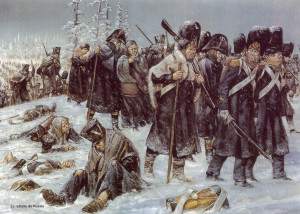 whether the test is a failure or success, some misfortune falls upon the head of the acting character. The Judge will choose from one of the following unfortunate events (or may make up an original one on the spot, if they desire), for each Misfortune rolled. In some cases, multiple Misfortunes may be used to make a specific event even worse.
whether the test is a failure or success, some misfortune falls upon the head of the acting character. The Judge will choose from one of the following unfortunate events (or may make up an original one on the spot, if they desire), for each Misfortune rolled. In some cases, multiple Misfortunes may be used to make a specific event even worse.
Reduce Success: -1 Success on the roll.
Counter Action: An opponent gains an immediate action (one roll). An individual opponent may only gain one Counter Action per unit of time.
Delay: The completion of the action is delayed one unit of time for each Misfortune spent. A musket takes longer to load, a lock takes longer to pick, the character slips on rubble while trying to ascend a breach, their bayonet gets lodged in their enemy, requiring an extra unit of time to retrieve it, etc.
Broken Item: A piece of applicable equipment is broken if Misfortunes equal to its Durability are used on this event.
Endanger Others: Some other character is placed in eminent danger due to the character’s actions. Useful as a means for the Judge to put the PC in the horns of a dilemma.
Looming Peril: Save a Misfortune to use later. Such saved Misfortune may be used at any time, not just during a character action. By saving up, more dramatic misfortunes can be engineered and dramatic turnarounds can be saved for more appropriate moments.
FINIS
So that is the entirety of the core rules, except for specific advice on how to apply them in certain situations, like combat, negotiation, making things, traveling, etc.
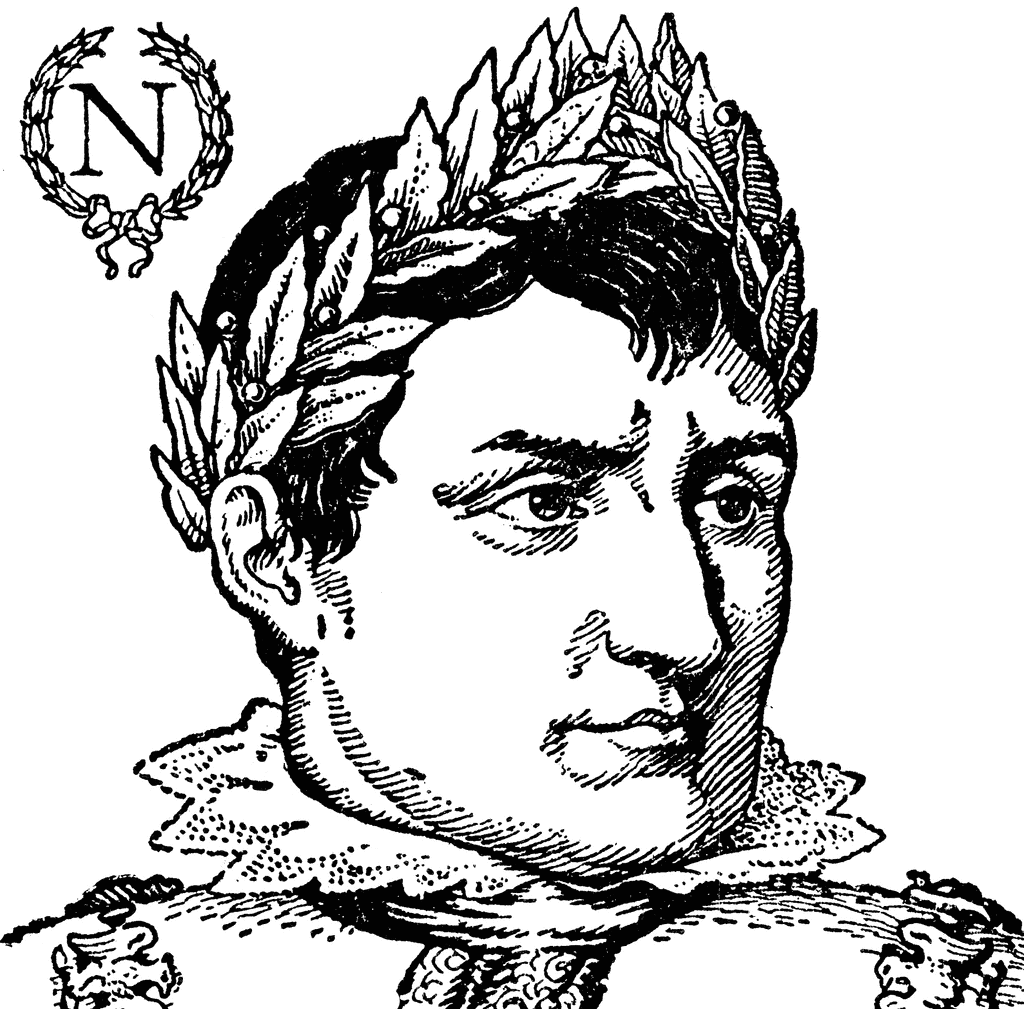 It is definitely (at this point) lighter and less mechanical in it’s design, something I think Maxwell Luther would shoot for, being a lit professor and wanting to hew as closely to Braunstein as possible (but with a bit more mechanical structure and advice for the referee).
It is definitely (at this point) lighter and less mechanical in it’s design, something I think Maxwell Luther would shoot for, being a lit professor and wanting to hew as closely to Braunstein as possible (but with a bit more mechanical structure and advice for the referee).
I’m currently hammering out the character generation, and that should be the subject of my next post. So far, it’s simple, and random, with lots of luverly tables. In other words, very 1970’s…

